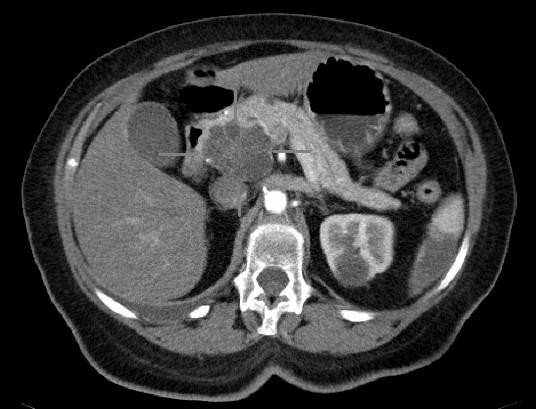A large international team of researchers has conducted genetic engineering on T cells as a way to combat pancreatic cancer. In their paper published in the journal Nature Biomedical Engineering, the group describes engineering certain kinds of T cells and how well the approach worked when tested under laboratory conditions.
Pancreatic cancer is one of the deadliest forms of cancer—five years after diagnosis, only 5 percent of patients are still alive. The reasons for the high death rate are a lack of symptoms until the cancer is in a late stage and because it spreads so easily and quickly. It has also proven to be more difficult to treat than most other types of cancers. In recent years, medical researchers have begun looking at the possibility of using immunotherapy to battle the disease in which they attempt to induce the immune system to attack tumors.
For immunotherapy to be effective, T cells must be able to reach tumors and then to kill them. Tumor cells in the pancreas are typically covered by stroma tissue that makes it difficult to use drugs to kill them—immune cells have no such problems. Also, prior research has shown that tumors in the pancreas emit a substance called CXCL16 that attracts non-T cell immune cells that are not capable of attacking the tumors—their presence interferes with immune cells that are capable of mounting an attack.
In this new effort, the researchers focused on a type of T cell that has shown an ability to destroy pancreatic tumors—but does not do so because it lacks the proper receptor that would make it be attracted to CXCL16. To overcome this problem, the researchers gave the T cells the missing receptor using genetic engineering.
The researchers tested their engineered T cells in two different ways. In the first, they injected them into pancreatic tumors situated under the skin of lab mice. In the second, they were injected into tissue hosting pancreatic tumors that had been grafted onto a mouse’s pancreas. In both cases, the engineered T cells showed sustained anti-tumoral activity and also increased survival rates. Inspired by their results, the researchers have begun the process of taking their approach into clinical trials.
New research optimizes body’s own immune system to fight cancer
More information:
Stefanie Lesch et al, T cells armed with C-X-C chemokine receptor type 6 enhance adoptive cell therapy for pancreatic tumours, Nature Biomedical Engineering (2021). DOI: 10.1038/s41551-021-00737-6
2021 Science X Network
Citation:
Using genetically engineered T cells to fight pancreatic cancer (2021, June 4)
retrieved 6 June 2021
from https://medicalxpress.com/news/2021-06-genetically-cells-pancreatic-cancer.html
This document is subject to copyright. Apart from any fair dealing for the purpose of private study or research, no
part may be reproduced without the written permission. The content is provided for information purposes only.



